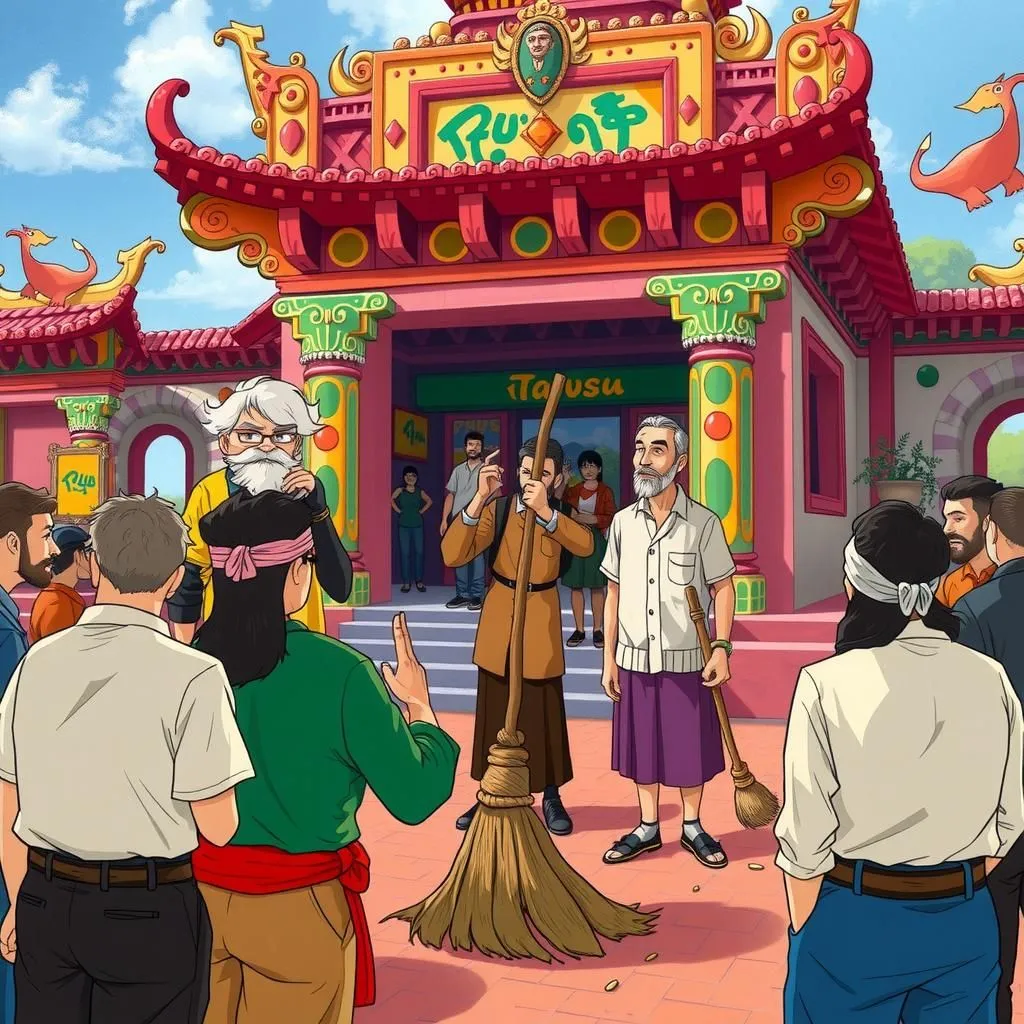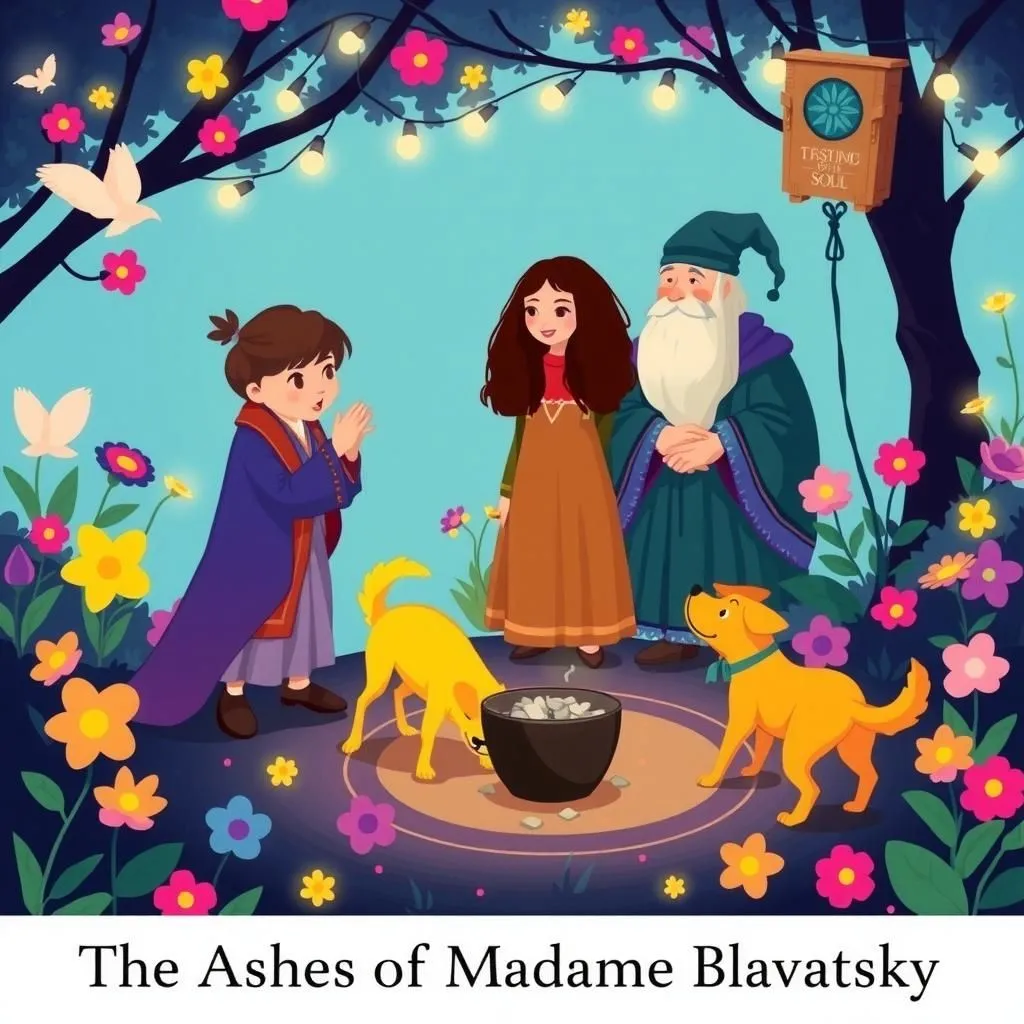
The Broom of the Temple
In the city of Gakwak, facing the loss of its capital status, the Wampog calls a council of male residents to discuss defensive measures, leading to a series of absurd and comedic suggestions. However, an Aged Man proposes practical improvements for community welfare, emphasizing the need for personal growth and development over bizarre rituals. The meeting humorously concludes with the men prioritizing tidiness by sweeping the temple, showcasing their peculiar values in this creative moral story.


